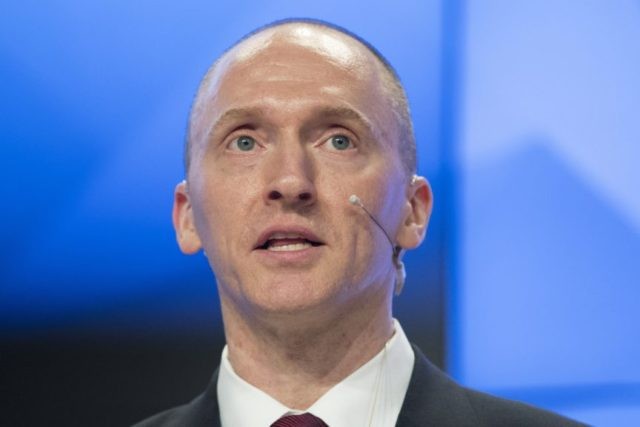Deputy Attorney General Rod Rosenstein approved an application to extend surveillance of former Trump campaign adviser Carter Page shortly after taking office last spring, according to the New York Times.
That is one of the revelations in a memo compiled by House Intelligence Committee staffers that is set to be released within weeks, according to “three people familiar with it” who spoke to the Times.
The memo is expected to detail abuses by senior FBI officials in their investigation of the Trump campaign, which began the summer of 2016.
The House Intelligence Committee could vote to release the memo as early as Monday. It would give President Trump five days to object; otherwise, the memo will be released.
Democrats, as well as the Justice Department, have warned that releasing the memo to the public would be “extraordinarily reckless,” although the leaks of the memo to the Times makes those claims dubious.
Democrats have also claimed that the memo, which summarizes classified information held by the Justice Department, is misleading and paints a “distorted” picture, and they have prepared their own counter memo they want to release.
The people who spoke to the Times argued that Rosenstein’s renewal of a spy warrant on Carter Page, Trump’s former campaign foreign policy adviser, “shows that the Justice Department under President Trump saw reason to believe that the associate, Carter Page, was acting as a Russian agent.”
The memo, however, is expected to detail how the surveillance warrant was initially obtained inappropriately using the Trump dossier — a political document funded by the Clinton campaign and the Democratic National Committee.
It is expected to show that FBI and DOJ officials did not explain to the secret court granting spy warrants that the dossier was politically fueled opposition research. To obtain the warrant, the officials needed to show “probable cause” that Page was acting as an agent of Russia.
Page joined the campaign in March 2016, around the time the team was under pressure to release names of foreign policy advisers.
The former investment banker and Navy officer took a personal trip to Moscow to deliver a speech at a graduation ceremony in July 2016, which fueled nascent allegations that Trump was somehow colluding with Russia. Page left the campaign in September.
The Trump dossier claimed he met with two high-level Russian officials on that trip, despite no evidence of it and Page’s testimony under oath that he never met with them. Page has sued BuzzFeed for publishing the dossier.
The FBI had been tracking Page, who was previously based in Moscow, since 2013, but was never charged with any wrongdoing. The FBI reportedly received the surveillance warrant on him in fall of 2016, but Page had left the campaign by then.
Rosenstein, after he was confirmed as the deputy attorney general in late April 2017, approved renewing the surveillance warrant, according to the Times. When Trump fired then-FBI Director James Comey in May, Rosenstein appointed Robert Mueller to lead a special counsel.
Rosenstein has been in charge of the Russia investigation since Attorney General Jeff Session recused himself.

COMMENTS
Please let us know if you're having issues with commenting.